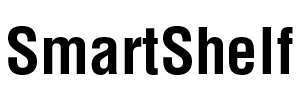
Agency
Lab
Years
Grant Number
Partners


Quatechnion
Institute of Research and Innovation in Bioengineering (i3b)
Description
If we look at the most important report in the world in retail that Deloitte takes out each year, the “Global Powers of Retailing 2017”, where the 250 most powerful companies in the retail world are reviewed, the report begins with this clear message: “What is interesting for next year is that what was previously futuristic is now at stake. Innovative retailers know that technology is no longer a complement to the shopping experience, it is critical. Technology alone, however, is not enough. Customers look for new and surprising products and experiences. Retailers are increasingly challenged to find ways to delight their customers and strengthen loyalty. It’s about mastering the art and science of customer engagement to design new experiences, enabled by technology. “
“The consumption of “experiences” has exceeded the consumption of “goods” by a factor of three to one in the last two years. We are seeing a movement away from the mass produced towards the “custom-made”. Customers want authentic and shareable experiences to promote their personal brand. Retailers that can constantly offer these moments will probably grow with a loyally loyal customer base.”
“The final trend is the arrival of exponential technologies. Much has been prophesied about the disruption coming from exponential technologies such as artificial intelligence, robotics, sensors and virtual reality. These technologies are no longer futuristic. The most innovative retailers are already using them to improve customer interactions and change the way work is done.”
It seems clear but the question is clear, is this revolution in the use of emerging technologies that is clearly being adopted in e-commerce, because it has not made the final leap with respect to the physical store
There are several reasons: the lack of knowledge of the technology applicable in the physical store by the decision-making teams of the retailers, the lack of investment in new store technologies of many brands in previous years, and especially the lack of easily replicable and integrable solutions harmonic in the current experience of the physical store.
For this idea the concept of “Smart Retail Furniture” arises, which seeks to develop a new concept of shop furniture that combines the exposure of physical products with digital technology to increase the “engagement” of buyers, analyze their behavior and manage in a more efficient the sales process.
Because the goal is not to fill the technology store itself, but with an object to improve the user experience. This will force to develop final products where technological innovation is integrated in a natural way in the environment (almost transparent to the user) with a very careful design, without saturating with oversized stimulation and that learns what each commercial space requires. It is the paradigm of Environmental Intelligence, of which the European Union has been a standard-bearer for more than 15 years.
For this it will be necessary to work with a multidisciplinary team (engineers, designers, creatives) and intersectorial (engineering, marketing, decoration, retail) to develop an innovative project close to the market.


